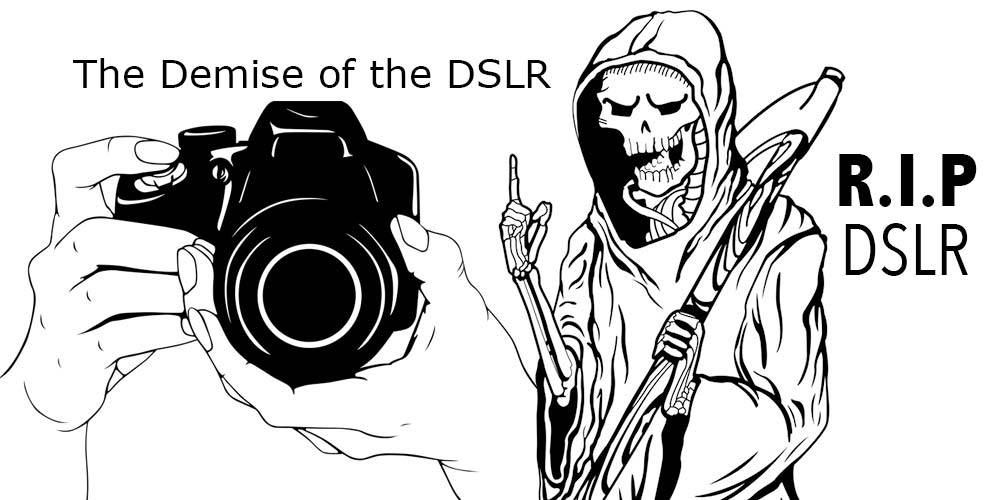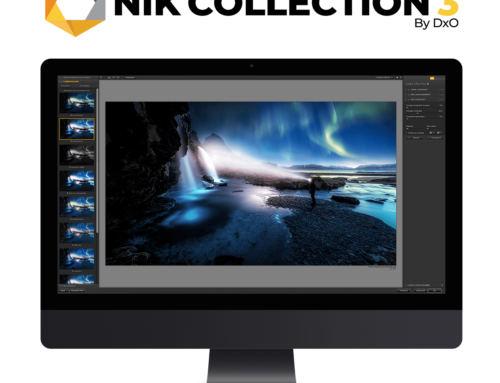Nikon and Canon
So what? Who cares if Nikon or Canon don’t have a full-frame mirrorless camera? Well, Nikon and Canon consumers care. They care a lot!
For the past couple of decades, Nikon and Canon have dominated the DSLR market. No other manufacturer got close. This market domination has meant that tens of millions of photographers have built up a photography ecosystem based on Nikon or Canon. This ecosystem will have cost those photographers a lot of money and there is no way that they are willing to give up on it and move to a new ecosystem necessary for mirrorless cameras. Plus, a lot of consumers suffer from “brand loyalty” and would rather gnaw off their own arm before switching to another manufacturer.
In short, the DSLR camera system will be alive while Nikon and Canon have no full-frame mirrorless cameras to offer their loyal consumers. Strangely, it is this exact point that leads me to believe that we are about to see the demise of the DSLR.
Why Are We About to See the Demise of the DSLR?
Recently, both Nikon and Canon have let it be known that they are launching a full-frame mirrorless camera. More accurately, whilst they have not yet made any public announcements that they are launching a full-frame mirrorless camera, they are no longer denying it or covering their R&D tracks. Both Nikon and Canon are expected to release their full-frame mirrorless cameras in late 2018 or early 2019.
When they both release their full-frame mirrorless cameras, their research and development money will slowly slide over to the new mirrorless systems. I don’t believe they will abandon DSLR cameras immediately. They will be reluctant to spend a huge amount of money on a parallel technology that would compete with their existing systems. In short, neither Nikon or Canon will want to compete with themselves. But they must eventually embrace a full-frame mirrorless system to facilitate growth and the emerging technologies.
They will also be very aware that their investors will want them to catch up with Sony, Fuji and Panasonic to ensure they don’t get left behind. Some could argue that they have already been caught off-guard with the rate of development and sales of mirrorless cameras. Sony now sells more cameras in America than Nikon. A statistic that would have been laughed at just three years ago.
Conclusion
If Nikon and Canon can produce a full-frame mirrorless camera that allows the use of their existing lenses, then I do truly believe that we will see the rapid demise of the DSLR. If they are forced to change to a new lens mounting system, then it could be several years longer before the demise. Regardless, their entry into the full-frame mirrorless system and the inevitable refocusing (see what I did there?) of their R&D money, will ultimately lead to the demise of the DSLR – even if it takes a decade.
What’re your thoughts?








I think you definitely make a valid point here. In fact I took the brave decision to move over to mirrorless several weeks ago and am now using the Sony Alpha range. A decision I don’t regret (as yet). I was fed up carrying my heavy DSLR around with me. Your article certainly makes for an interesting read. I’ll be curious to see how things develop (no pun intended) over the coming years.
Look forward to reading any future updates
Irene, it may not even be the coming years. In 9 months from now, the debate will be in full swing.
really tempted by the A7iii to go mirrorless…
Me too.
Outstanding images can be caught.with a decent dslr camera mirrorless has lots of great features but if you cant.master dslr dont waste your money strong marketing is driving photographers to discard superb camera systems try before you buy if you can
I’m still trying to master my Nikon and enjoying every minute
Can’t stand mirrorless. Too small, fiddly and the EVFs are awful.
I use both, regularly. I find the mirrorless delivers better quality, cleaner images. I was reluctant at first, I need a smaller camera to carry when shooting mountain’s. I can only say from my own experiences that since I’ve been using the Sony A7r2 I’ve not gone back to using my Nikkon. Probably end up selling. Just an FYI, outstanding images can be captured on any system. The EVF is brilliant, may not be so good in pitch black but still it really is a minor trade off for the ability to use ANY lens from any system. Looking at the road map for the big three I think there will be a push develop the tech. Let’s no forget that 20 years ago everyone scoffed at digital.
DSLR still the best camera for Aurora photography.
No one has mentioned is that having an optical viewfinder is pretty much essential to anyone over 50 who wants to be able to clearly frame a shot without having to wear glasses. My mirrorless camera is more of a lottery, whereas when I use my DSLR I know what the picture will look like before I check it on my PC.
While I like the idea of mirrorless as it’s lighter, you need a really faster viewfinder otherwise you get camera delay between seeing the shot and capturing it. Unless you pay a lot of money by the time you press GO the shot has gone. Fine for scenes but for capturing the moment in action shots such as sport you’ve either got to be very predictive or lucky. Give it a few more years perhaps.
Mirrorless systems are pushing the boundaries of photography with every release of a camera remember when digital first came into being photographers came across from film kicking and screaming now its happening again ,longer lenses for sports and the next generation of mirrorless cameras from what ever manufactures will be tipping the balance Cannon are developing mirrorless , Hassleblad have mirrorless , Fuji, I think the writing is on the wall unless there is a manufacturer that develops something outstanding for digital but how far can one technology go before change
Martii, the parallels that you draw with the transition from film to digital are spot on. Camera technology is being shackled by the mirror and prism.